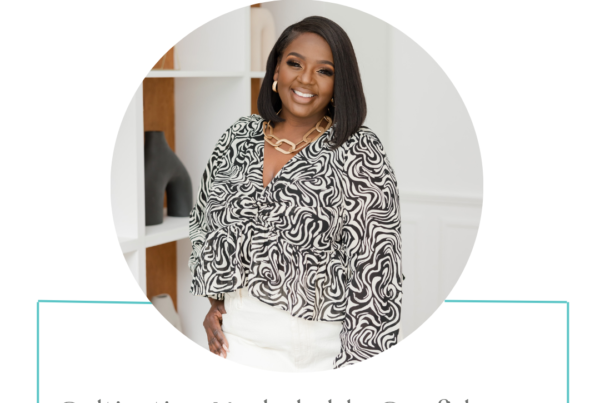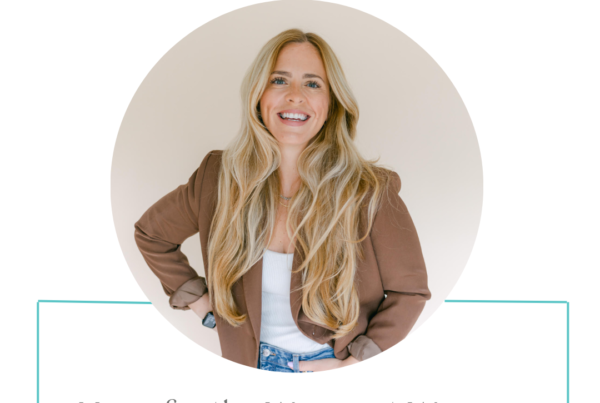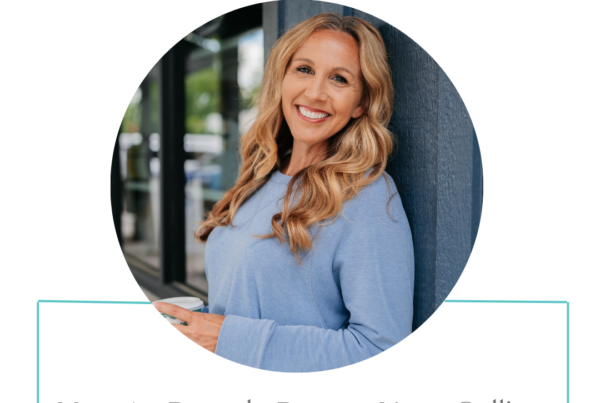Dr. Alison Cook, a psychologist and writer, teaches women to live empowered and cultivate life-changing strategies to help them develop their voices, forge healthy relationships, and embrace the holy, sacred work of becoming their best and truest selves in God. Dr. Cook shares how developing a strong sense of self is paramount to living the life God has for us and offers wisdom for women who feel so stuck in an endless cycle of meeting everyone else’s needs and expectations that they lose sight of their own. May our enlightening conversation with Dr. Alison Cook inspire you to stop playing small, break free from codependency and find the joy of true connection with yourself, God, and other people.
For show notes and noteworthy links, visit wonderfullymade.org/podcast.
—
Watch the episode here
Listen to the podcast here
Becoming Your True Self In God — With Dr. Alison Cook
If you have ever longed to find your voice and speak up for yourself, trust yourself, set boundaries, and live in authentic connection to yourself, God, and others, this episode is for you. We have psychologist, writer, and teacher, Dr. Alison Cook, with us to explore the process and practice of becoming who we truly are and the healing process of coming home to ourselves and to God.
Over the past several years, Dr. Alison has brought together faith and psychology in such a beautiful way to help thousands of women reclaim their confidence, find their purpose, and develop authentic connections. Her most recent book is called The Best of you: Break Free from Painful Patterns, Mend your Past and Discover Your True Self in God. Welcome, Dr. Alison.
Thanks so much for having me. I’m happy to be here.
We’re happy to have you. We’re honored that you’re here. Will you begin us by introducing us yourself, sharing a little bit of your story with us, and your own journey? You’re a wise woman. What was your journey like, finding your voice and learning to trust yourself, and setting boundaries in your own life?
In my twenties, I was someone who loved God. I grew up in the church, always believing in God. I loved Jesus. I knew a lot about God and the Scriptures. I had not one single clue about myself, or about how to have healthy relationships. Here I am, living this life without a clue about how to live this life God has given us to live. Although I love God, know God, pray to God, and pray for all these things, I do not have the skills to go out into life and live it. You and I went and studied Psychology to try to learn these things. As I came to be a therapist and went on my own healing journey, I discovered in my practice, mostly working with women, that many women have that same experience.
Women find it hard to be their true selves because of their childhood wounds, misconstrued church messages, and cultural conditioning. Click To TweetI know God. I love God. Why is my life still not what I want it to be? Why are my relationships hard? Why do I feel like I’m invisible? Why am I still lonely? I have all of these questions that I rumbled with so much. There’s this gap between what we’re taught in our faith communities that is for the most part great, and what we’re taught about how to be a whole person. It flows out of my own journey of having to learn it the long way, the hard way, trying to make it a little bit easier, and a little bit more accessible for other women who read my work and come to me for support.
It reminds me of this concept that you share in your book that resonated, and that I see resonating for women in my life. You can be spiritually strong and yet emotionally struggling. Will you talk with us about that?
In the book, I call it a Cocktail of Codependency. There are a bunch of different factors that go into this idea of being emotionally struggling, even though we know God loves us, even though we know some of these faith ideas. What are some childhood wounds? A lot of us grew up without even realizing it. We pick up these wounds in our families of origin. It’s common. Most of us have picked up 1 wound or 2, even in the best of families. We have to learn what those are.
Secondly, there are some church messages that get misconstrued. We learn to think that we should only focus on other people and that we should die to ourselves. I talk a lot about that in the book. What does that mean? Thirdly, for women, in particular, there’s some cultural conditioning that magnifies all of that. We’re supposed to be a certain way or show up a certain way.
I’ve noticed those three factors can make it hard for women to step forward as their true selves, as confident women, empowered by the Spirit of Christ, empowered to be bold, courageous, and live full lives. We stay stuck, hidden, feeling invisible and disempowered, and feeling like, “I don’t know how to get the life that I wanted. Am I even supposed to try for that?”

Becoming Your True Self: There is a voice of ego in your head that is keeping you from being the real you. Ego is all about managing perceptions. Whereas authenticity is about who you really are.
Will you talk with us about the Armor of Invisibility? Many of us have heard about the fight, flight, and freeze, the reactions that we have. A lot of it is based on things that have happened to us and maybe also a bit of our personality, whether we’re more of a move against, move towards, or move away in conflict. You mentioned also this concept of fawning. Will you talk with us about the Armor of Invisibility and fawning?
I call it the Armor of Invisibility. It’s what I felt most of my life, being invisible. There’s a therapist, Pete Walker, who came up with this term, fawning. It’s been adapted into this fight, flight, freeze, and fawn. These are the different ways that we cope or learn to survive in the world. Fawning looks like being nice. I’m here in the mountains of Wyoming. I ran across a baby fawn. If you think of a fawn in the wilderness, they make themselves tiny and cuddly. They don’t fight. They make themselves sweet that you would never want to hurt them.
Here’s an actual physiological thing that happens in our nervous system when we fawn. It looks like pleasing others. It’s an impulse. It’s a conditioned response where my first response is to make you feel good about yourself, meet your need, and make sure you’re happy. It’s an anxiety response almost. As I’ve driven down to it into myself, I’m like, “There’s anxiety. If I feel anxious, I don’t fight. I don’t flee. I’m going to do everything I can to make sure you feel great.”
People love it. It’s an adaptive survival response. You keep people from being angry with you. You keep people from coming after you, but you also stay hidden. People don’t know who you are. That’s why I call it this Armor of Invisibility. It’s protective. Nobody’s going to come after you when you’re only being nice, meek, and never getting in anyone’s way. You’re turning yourself inside out to make sure other people are happy. You can keep yourself safe. Nobody knows you. You’re hidden. That was how I lived my life.
I talk about in the book that I met my now husband in my mid-30s because I didn’t know how to make myself be seen. At the time, my husband and I were dating. We were on a date early on and he called me out on it. I’m grateful to him to this day. It was the only way I knew how to show up. “Let me keep the focus on you.” He was like, “I don’t want that. I would like to get to know you.” That’s how deep it was in me. I didn’t know how to bring myself into relationships. I see this in many women. This fawn response is the most common, especially for women raised in faith communities that I come across because it’s affirmed as being how we’re supposed to be. It’s not.
Fawning is the impulse to please someone. If you're anxious, you fawn. It's a very adaptive survival response that you need to stop doing. Click To TweetI’m going to share a bit from my personal journey, too. In coaching, part of that journey of me becoming a coach has also been receiving a lot of coaching and realizing that I have agency over these things. I came into coaching with this thing that I don’t feel seen. I don’t feel heard. Where is my voice? Why aren’t people seeing me?
I realized people aren’t seeing me because I’m hiding. I’m hiding behind making myself small, playing to the audience, feeling like I need to entertain people in conversations and keep them happy. It trickles into codependency. That’s where I’m hoping you can take us next. I, myself am learning about what codependency is, the signs and symptoms of codependency, and how it impacts our adult development. Will you give us a little crash course on codependency?
It completely relates. It is a buzzy word, but most of us deal with it on some level. It’s a way of relating to other people where we betray aspects of ourselves or bypass aspects of who we are in order to keep the focus on other people. It’s that simple. We forge these relationships that are based on, “I’m not showing you who I am. I keep the focus on you.” In a stereotypical way, it might be, “I manage your issues instead of bringing my own to the surface. I’ll take care of you. I’ll walk along after you and pick up the pieces of your behavior.”
We start to feel good about ourselves. I love what you realized about yourself. This was my experience. I felt like a good person doing that, but I also felt invisible. I didn’t realize I was contributing. I was frustrated with other people. I’m like, “Why don’t other people see me? Why don’t other people see how hard I’m working for them?”
People will take what you give. I had to learn, change, and both pivot from being so focused on fixing, helping, and pleasing everybody else and more focused on, first of all, healing myself, and second of all, bringing myself agency and intention into relationships with other people. It’s a two-part process of healing from that. It’s hard, especially when it’s a lifetime of habits.

Becoming Your True Self: Don’t act out of your anger, but also don’t push that anger away.
Taking a responsibility piece is huge. It also brings me to this thing you talk about of our ego and the part that our ego plays. There is an element of this fawning thing and this people-pleasing thing that we want to be seen a certain way. We want to be likable. Maybe it’s at work. We take on more than we know we should. We’re resentful, but at the same time, we’re not the ones setting boundaries, but we don’t set boundaries because we want to be seen as the go-to person or we don’t want to be. Will you talk about the role of ego in this, and maybe touch on the ego versus that tender voice that you allude to in your book?
There is that voice of ego inside saying, “You can’t let them see the real you. You can’t let them see that you might have a need. You can’t let them see that this has been a vulnerability for you. You’ve got to keep it all together.” It’s a way we learn to cope. We learned it long ago. You might have been in third grade and then hurt by other kids. Some part of you picked up the message, “I’m never showing that weakness again.” These go way back a lot of times, or even in our families, a sibling made fun of us or parents didn’t understand a part of our personality.
Sometimes parents, even the best of parents, “You’re too much. You’re bossy.” These messages get lodged and we’re like, “I’ve got to shrink myself.” Ego steps in and says, “You’ve got to manage that perception.” I go into this thing of managing perceptions. Ego is all about managing perceptions. Get them to see you in a certain way. Whereas authenticity is, “This is who I am. You decide if you like me or not.” That’s vulnerable. It is freeing to be like, “This is who I am.” You get to decide together, “Is this going to work or not?” whatever the relationship is. The tender voice is in contrast to the ego because the tender voice is that vulnerable voice inside that is saying, “I want to be me.”
You think about a little child. I think about myself before we get these shaming messages. We want to play, dance, and sing. We want to be silly. I have clients that say, “I want to organize everybody.” It’s this sweet, genuine part, but someone else came alongside you and said, “You’re annoying. You’re this.” We want to return to that freedom of those childlike parts of us that want to be who we are. That’s who Jesus loves. I use that passage where Jesus said, “Let the little children come to me. There’s no shame here.”
There are times and places to protect ourselves and we can get into that, but we need to know, especially with the people we love and we’re trying to forge authentic relationships with. We need to show up as those genuine, who we are at our core. If you think about children, they are lovely, playful, delightful human beings. We learned to cover it all up.
Selflessness is saying it's never about me; selfishness is saying it's always about me, while Selfhood is about you and me. Click To TweetAs you were saying this, I think about this story that you share in your book, an example you give of a kid in middle school or whatever who doesn’t want to go to the dance. What is the message at home in response to that? Is it, “You have to go to the dance. Everybody’s going,” or is it, “You don’t want to go to the dance? Let’s talk about why you don’t want to go.” What kind of freedom did we experience as children in making decisions? You talk about this concept of honor. How much were we honored? There comes also the concept of maybe we heard messages that in our little brains, we translated a certain way through a certain lens.
The adults in our lives were dealing with their own stuff. They didn’t mean it that way, but we still felt skipped over and dismissed. How does that play into how much we listen to and ask ourselves the question, “What do I want?” How often do we honor that? You zone in on this biblical message that is important for a lot of us now of the hardest deceitful above all else. Will you talk with us about how you view that passage and maybe how it’s been misconstrued and then a truthful Christ-like way to look at that?
Sometimes this happens, but we hear these in the airwaves. A part of me picked up that message, “My heart is bad. I cannot trust myself. I am wicked.” From a psychological perspective, that doesn’t make sense. If I’m going through life going, “I cannot trust myself,” how can I possibly make wise decisions? That’s a recipe for codependency. That’s a recipe for saying you can’t trust yourself so you have to blindly trust everyone around you. That is exactly what leads to codependency because we’re not going into our relationships with wisdom. We’re not going into our relationships with our true selves and listening to the cues that God gave us in our bodies.
Our body is saying, “Something doesn’t feel right here,” but we’re overriding that because we’ve been taught, “I can’t trust myself.” God designed our bodies to give us those mechanisms to go, “Something doesn’t feel right here. I need to listen to that.” In that Jeremiah passage, what people often miss is Jeremiah said that thing about the heart as deceitful and wicked. Jeremiah also said a few chapters later, that the solution to the problem was that Jesus was going to come. The law had been external. Jesus was going to come and write the law in our hearts through the power of the Holy Spirit.
We have the Holy Spirit inside of us. We have the power. There’s the agency from the inside out where we connect to the Holy Spirit who lives in me. I partner with the Holy Spirit to pay attention from an internal place. The psychological term for that is an agency or another way that psychologists call an internal locus of control. What that means is with the help of the Holy Spirit, I begin to listen to the cues my body, my mind, and my heart are giving me. I guide myself as I navigate the world from that internal place, as opposed to an external locus of control, where I’m at the whim of everybody around me.
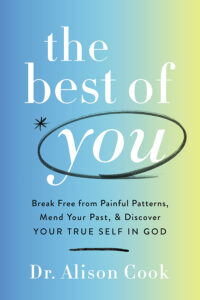
The Best Of You: Break Free From Painful Patterns, Mend Your Past, And Discover Your True Self In God
It’s not biblical. It’s not what we’re taught in the New Testament. It’s not what Jeremiah was saying. He was saying, “This is the problem. Here’s the solution that God has provided for that problem.” It’s a misconstrued passage that has hurt a lot of women in particular. Guys somehow get tired. “You should trust yourself.” There’s something, especially as women, where we are conditioned to look outwardly for our cues, as opposed to learning to listen to the cues that come. That’s wisdom. That’s the beginning of discernment.
There is a part of this, and this is also something that you speak to, we’re afraid that if we honor ourselves, then we’re being selfish. It’s the whole concept of laying down your life or sacrificing for others. You introduced this concept of selfhood versus selflessness versus selfishness. Will you walk us through the difference between those three and how we can cultivate healthy selfhood?
Selfhood or having a true self is neither being selfish nor is it being self-less to a degree. The example that says selflessness is saying, “It’s never about me. It’s always about others.” Selfishness is, “It’s always about me. I put myself first.” Selfhood is this both ends, “It is about me. It’s also about you.” if you think about any healthy relationship, it’s both. It is about me and it’s about you. It takes two whole selves to negotiate what that’s going to look like. “Here’s what I want to do.” “Here’s what I want to do.” “Let’s figure that out together.” Two healthy people can do that beautifully.
If I start saying, “It’s never about me. It’s always about you,” that is a recipe for resentment, burnout, and exhaustion. That’s not what Jesus modeled. Jesus was selfless in the way that whenever Jesus acted sacrificially, it was always for a higher good. It wasn’t just to roll over and play dead. We don’t see that in Jesus. I say in my book, “Jesus wasn’t a doormat. He was strong. He spoke up on behalf of what was right and true and good and on behalf of Himself. He called out toxic behavior. He had a strong sense of self. It wasn’t selfish.”
Our model in Jesus isn’t to roll over and play dead. We don’t see that in Jesus. It’s not to be a doormat. It’s to understand who we are. John says, “When we follow Jesus, we become more of our God-created selves.” The old is gone. I often say to women, “For us, the old dying to self might be dying to the people-pleasing. It might be dying to the performing to get loved. It’s not necessarily dying to ourselves. It might be dying of our old ways of staying hidden. It might be becoming more of ourselves.” I don’t think we often hear that, especially as women.
Living at peace with yourself means living at peace with disappointing other people. Click To TweetIt takes work to do that. It takes work to come out of hiding. It’s not an easy road. A lot of times, the easy road is to keep on with the status quo because, in order to start using our voice, we have to look at our feelings. That’s the whole thing. We can’t trust our feelings. That’s sometimes true. Feelings are their information now. We can’t be completely controlled by them and we also can’t ignore them because they have that information for us inside them. When strong feelings come up for people, is there a process of inquiry that you recommend for them?
My first book, Boundaries for Your Soul, is about that process. The first book that I wrote is all about that internal process. The subtitle is How to Turn Your Overwhelming Thoughts and Feelings into Your Greatest Allies. It’s a five-step process based on a model of therapy to deal with overwhelming emotions. We don’t want to act out of our anger, but we also don’t want to push our anger away. It’s true of any emotion. We want to learn to understand and get curious about our anger. Where is it coming from? Why is it there? Is it there for a reason? Did someone hurt me?
Once you begin to get curious, and again, you’re doing this from that place inside where the Holy Spirit lives. You’re learning to lead yourself, “Why am I angry? Why is that there?” You do a process of inquiry. We have a whole series of questions you can ask yourself to understand that, and then you’re in charge. You get to decide, “How do I want to act on behalf of that? Maybe I need to go to this person. Maybe I need to set healthier boundaries here. Maybe it’s not them at all. Maybe this is a trigger from the past.” When you begin to pay attention to your emotions, you lead them and yourself, and you show up more authentically.
What you said is so true that it is easier sometimes to ignore all of this and play small. I remember the first couple of times I started to get angry. I was like, “These other people aren’t going to like this.” They liked me being nice all the time. “Do I want to go here?” I’m noticing that they’re not treating me right. Now I got to deal with that. That means things are going to change. Change is hard. We have to count that cost a little bit. It’s a better way to live.
The story you share of when you got the Queen of Hearts role is also ringing up for me. There was this hesitancy to like step into your own power. For many of us, myself included, this is a process that I’m in of, “How do I step into my own power?” That’s my authentic, genuine self. That’s the paradox of it, isn’t it? We step into our own power by simply being ourselves. There’s a lot of vulnerability in that.
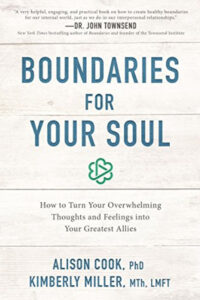
Boundaries For Your Soul: How To Turn Your Overwhelming Thoughts And Feelings Into Your Greatest Allies
Maybe that’s the whole way of the Kingdom. You die to yourself. You die to that ego part that wants to be perceived a certain way. You step into who God made you to be. That person who God me made to be has a voice. I’m also a human. I have all these contradictions and not everybody’s going to super like me or understand me. I have to be okay with the fact that not everybody is going to like me. That’s all right.
In the last chapter of the book, I talk about living at peace with yourself. Living at peace with yourself means living at peace with disappointing other people sometimes. I was like, “That seems negative, but the truth is it’s freeing.” When you’re around people who are being their true selves and are stepping into their power, it’s delightful. It’s life-giving and energizing. You start to draw more of those people in. That’s what you want. Do we want to be around people that we have to hide?
As you begin to build that muscle, I liken it to building a muscle of, “As I step into who I am, some people might fall away but so do the people who get it comes in and it’s just fire. It’s exciting. It’s a better way.” That muscle grows because you’re like, “Why would I go back?” I do think it is the Kingdom. It’s ultimately where God is taking us.
It is to bring more and more of who He created us to be to the surface. The more all of us are doing that, the more we’re cheering each other on. All of a sudden, I’m not trying to be like you or compete with you or compare myself to you. I’m going, “Look at you. You’re amazing.” We’re excited for each other. When you taste that, it is a little glimpse of heaven and how it’s supposed to be.
I want everybody to buy your book. I signed up for your newsletter. I follow your podcast. I started discovering the resources that you offer. If you could give your younger self some words of wisdom, how old would she be? What would you tell her?
I have to go back to that sixth-grade girl who was the Queen of Hearts. I tell the story in the book who completely caved in on herself, wanted so desperately to inhabit the bold character, and couldn’t. I would go back to her and let her know that she is the fire inside. Even if that fire is quiet, confidence looks many different ways. Confidence doesn’t have to be loud or bold or over the top. Confidence can be the blazing fire of silence inside. It’s something that comes from deep inside. She didn’t know that. She thought she needed to be like all the other girls. I would tell her, “You find that fire inside of you. You inhabit out of her because she’s awesome.”
That’s the message we want everybody to take away from this conversation. I love that. Inhabit yourself. Honor God by honoring who He truly made you to be, and start trusting yourself more. Thank you, Dr. Alison.
Important Links
- The Best of you: Break Free from Painful Patterns, Mend your Past and Discover Your True Self in God
- Boundaries for Your Soul
- https://www.DrAlisonCook.com/
About Dr. Alison Cook
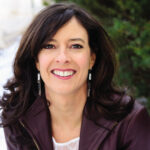 Dr. Alison Cook is a psychologist and writer who has earned the trust of thousands of women through her practical, wise, and compassionate approach to becoming a whole person. Her popular blog and podcast reach over 50,000 women each week. For over two decades, she has helped women heal from past wounds, develop a strong sense of self, forge healthy relationships with others, and experience a loving God who is for them.
Dr. Alison Cook is a psychologist and writer who has earned the trust of thousands of women through her practical, wise, and compassionate approach to becoming a whole person. Her popular blog and podcast reach over 50,000 women each week. For over two decades, she has helped women heal from past wounds, develop a strong sense of self, forge healthy relationships with others, and experience a loving God who is for them.

